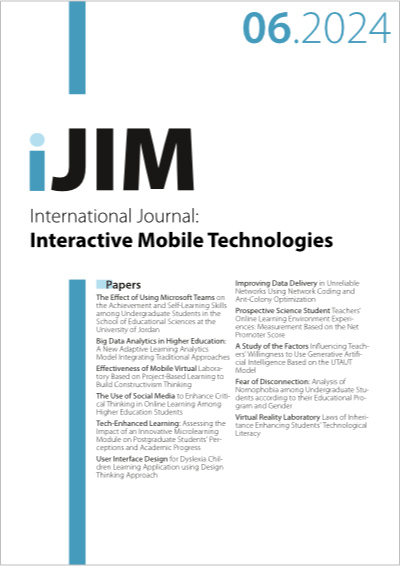A Study of the Factors Influencing Teachers' Willingness to Use Generative Artificial Intelligence Based on the UTAUT Model
DOI:
https://doi.org/10.3991/ijim.v18i06.47991Keywords:
digital technology, mobile computing, Generative Artificial Intelligence, UTAUT modelAbstract
The advancement of wireless communication and mobile computing technologies has paved the way for the extensive application of Artificial Intelligence across diverse sectors, including electronics, automotive, medical, industrial, and educational fields. Employing the Unified Theory of Acceptance and Use of Technology, this study investigates the key determinants influencing preschool teachers’ willingness to utilize Generative Artificial Intelligence (GAI) in Jiangsu Province, China. The research, involving 154 participants, analyzes their inclination towards GAI adoption through four dimensions: performance expectancy, effort expectancy, social influence, and facilitating conditions. Findings reveal that performance expectancy, social influence, and facilitating conditions significantly enhance their willingness to adopt GAI. Additionally, teaching experience and IT proficiency were found to moderate the effects of certain variables on this willingness. This aligns with the broader goal of integrating digital technology into education, which is a vital element of the nexus between digital technology development and innovation.
Downloads
Published
How to Cite
Issue
Section
License
Copyright (c) 2024 Xinhua Zhang (Submitter); Xinhua Zhang, Thitinant Wareewanich

This work is licensed under a Creative Commons Attribution 4.0 International License.



